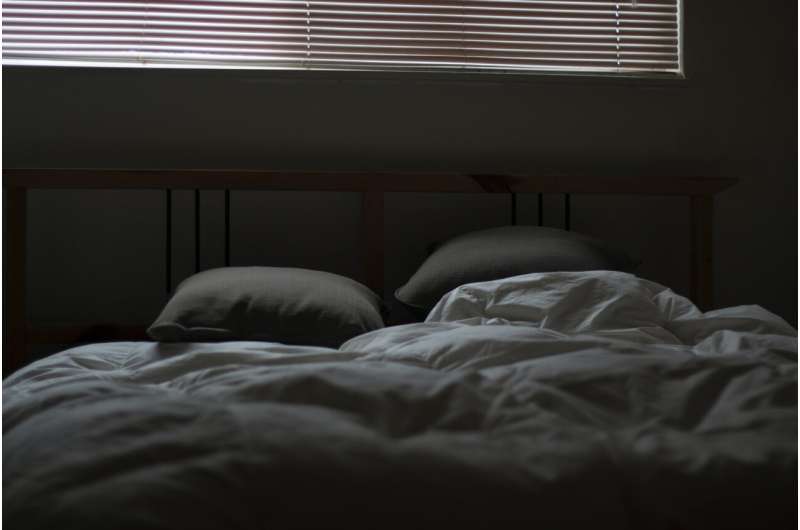#Study results challenge theory that slow-wave sleep best accounts for feeling deeply asleep

“#Study results challenge theory that slow-wave sleep best accounts for feeling deeply asleep”

A team of researchers with Lausanne University Hospital has found evidence that challenges the theory that slow brainwaves during sleep indicate the person is feeling that they are deeply asleep. Their study results are published in Current Biology.
For many years, medical science has held firm to the belief that it is possible to tell how deeply a person is sleeping by watching their brainwaves on an EEG readout. In this new effort, the researchers challenge that notion by taking a closer look at what happens with people who suffer from chronic insomnia.
To learn more about insomnia and to possibly find a cure for it, the researchers asked 10 people with insomnia and 20 people who generally sleep normally to undergo EEG recordings as they slept in a lab. Each also reported on the quality of their sleep. The researchers also performed 787 awakenings of the volunteers to get near-instant feedback regarding their quality of sleep across sleep stages.
In looking at their data, the researchers found that normal sleepers reported experiencing their lightest sleep during the first two hours of sleep, a period of non-REM sleep. The insomniacs, on the other hand, reported feeling more awake than those who slept normally those first two hours. They also reported feeling like they slept more lightly during REM sleep, which prior research has suggested is the time when people normally sleep the deepest.
The researchers also found that the insomniacs were very often sleeping during times that they thought they were awake, suggesting they get more sleep than they think they do. But the researchers also found that there was a certain degree of overlap between slow-wave sleep and fast-wave sleep in the insomniacs—an indication that they are both awake and asleep at the same time. The researchers suggest this finding challenges the notion that slow waves necessarily indicate both heavy sleep and the feeling of having slept heavily afterward. They further suggest older ideas tend to ignore the feelings of disassociation people can have while sleeping—an indication that something went wrong during the sleeping process.
New method makes the experience of sleeplessness more visible
Aurélie M. Stephan et al, Conscious experiences and high-density EEG patterns predicting subjective sleep depth, Current Biology (2021). DOI: 10.1016/j.cub.2021.10.012
© 2021 Science X Network
Citation:
Study results challenge theory that slow-wave sleep best accounts for feeling deeply asleep (2021, November 9)
retrieved 9 November 2021
from https://medicalxpress.com/news/2021-11-results-theory-slow-wave-accounts-deeply.html
This document is subject to copyright. Apart from any fair dealing for the purpose of private study or research, no
part may be reproduced without the written permission. The content is provided for information purposes only.
If you liked the article, do not forget to share it with your friends. Follow us on Google News too, click on the star and choose us from your favorites.
For forums sites go to Forum.BuradaBiliyorum.Com
If you want to read more Like this articles, you can visit our Science category.




